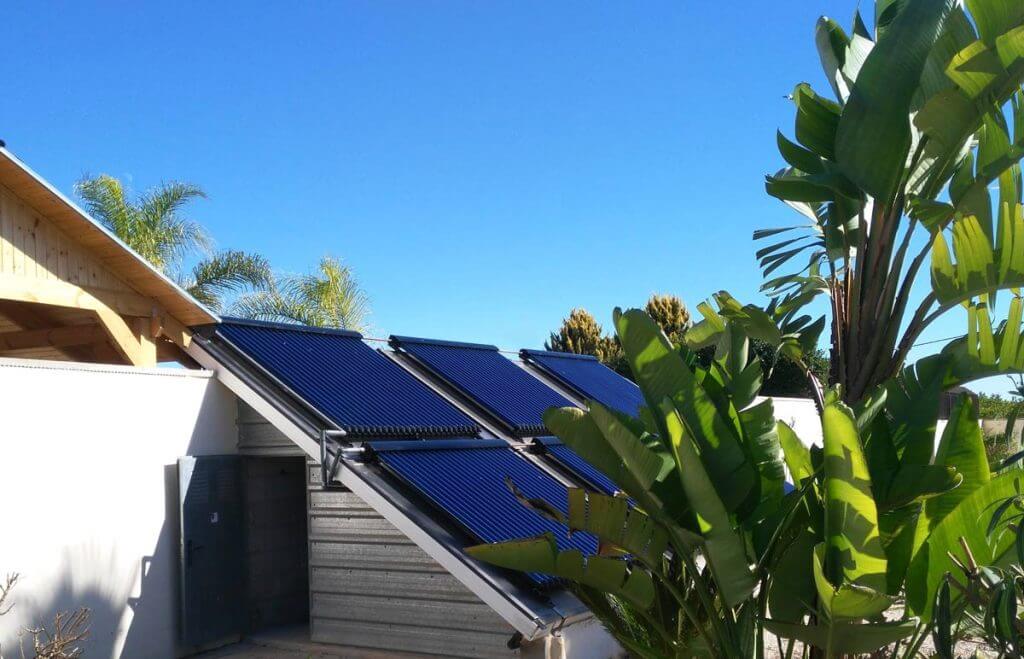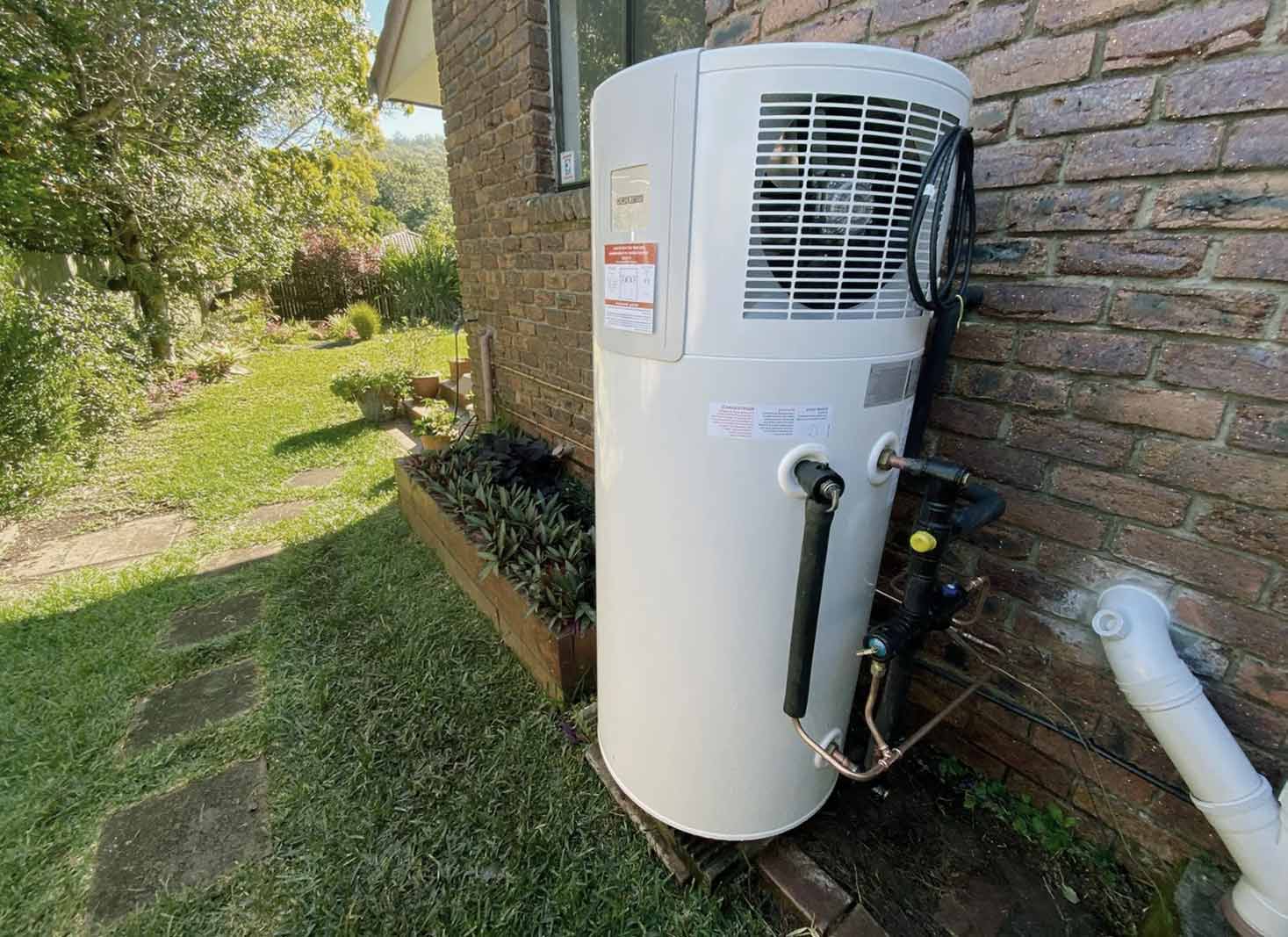Home Choose the Right Solar Hot Water System
How To Choose the Right Solar Hot Water System for Your Home
Solar hot water systems are a sensible and eco-friendly choice for fulfilling a household’s need for hot water. Even though there might be a significant upfront cost for installation, these systems prove to be much more economical over time, offering savings as the years go by.
When choosing a solar water heater for your home, you should consider factors such as the cost of the system, the capacity required, available roof space, orientation, and local climate conditions.
This blog will guide you in choosing the best solar hot water system that fits your needs. The journey towards sustainable yet cost-efficient heating begins now!

Table of Contents
ToggleShort summary
- Solar Hot Water Systems are an energy-efficient and environmentally conscious option for hot water.
- Consider factors such as needs, roof space & orientation, climate, cost & installation fees to select the most suitable system.
- Financial incentives and rebates can be obtained through online applications with varying eligibility criteria depending on region/program.
Understanding solar hot water systems
Solar powered hot water systems are an effective, cost-efficient and eco-friendly substitute to traditional gas or electric heating options. There are several varieties of solar heated systems available such as thermosiphon, split system or even heat pump variations with auxiliary elements including electric/gas boosters for those days when sunlight is minimal.
Components of solar hot water systems
The main components of solar hot water systems are:
- Solar Collector( to collect solar energy)
- Insulated tank (to store hot water)
- Supporting stand
- Connecting pipes and instrumentation
How do solar hot water systems work?
Solar hot water systems use solar collectors to collect the energy from the sun and transfer it to heated water. The size of storage tank used depends on the household’s hot water needs, with some systems using a pump between them for circulation purposes.
Thermosiphon is employed in certain instances to protect against freezing temperatures or expansion damage. Thus preserving system efficiency and longevity over time. Collectors should be positioned facing northwards onto an unshaded roof surface to ensure optimal absorption results are achieved for producing your own high-quality supply of warm water!
Choosing the right solar hot water system for your home
When it comes to selecting a solar hot water system, several elements should be taken into account:
- The cost of buying and installing the system
- Your family’s daily needs for hot water
- The dimensions of and orientation of available roof space
- Frost prevention capability
- Climate conditions in your region
By analysing these points thoroughly, you can pick out an appropriate solution that fits all requirements.
To help make sure you choose correctly, let us delve deeper into each factor so we can ensure getting just what is needed from a solar-powered hot water system.
How much do solar hot water systems cost?
The average cost of solar hot water systems ranges from $3,000 to $6,000, fully installed. This cost is inclusive of the government rebates. The exact cost of these systems will vary widely depending on their type and installation costs.
Below are the average costs for different types of solar hot water systems, such as flat plate systems, evacuated tube systems and heat pump systems.
| Type of solar hot water system | Average cost (fully installed) | Description |
|---|---|---|
| Flat plate systems | $3,000 to $4,000 | Are affordable Have a low thermal efficiency |
| Evacuated tube systems | $6,000+ | Ideal for colder parts of Australia like Melbourne and Hobart |
| Heat pump systems | $3,000+ | Highly-efficient and affordable. Can work well in any climate |
Assessing your household's hot water needs
When choosing a suitable solar hot water system, it’s important to know your household’s hot water needs. Gas tank storage systems need 30-40 litres per person and electric ones require 55-60 litres of consumption.
Other factors such as family size, type of system used (thermosiphon or split), local climate conditions and roof orientation may play a role in the amount required too.
To ensure you pick out the best possible fit for your home’s demands. Consider energy efficiency ratings alongside available boosters for heat pumps/gas tanks plus maintenance plans with warranties prior to purchase!
Available roof space and orientation
The roof and its orientation play an important role when selecting a solar hot water system. It is best if the panels are mounted on north-facing roofs to get maximum sunlight over the year. So, it’s essential to assess how much sun your available space gets before making your decision.
The weight of a thermosiphon system’s tank may require reinforcement of the roof, plus installation costs could rise due to difficult access conditions for installers.
Local climate and frost protection
When installing a solar hot water system in colder climates where frost may be present, it is vital to make sure the panels are capable of withstanding frost and that freeze protection mechanisms have been implemented. Outdoor storage tanks should ideally be placed indoors as an extra precaution against possible damage due to cold temperatures.
By taking these conditions into consideration when selecting your hot water system, you can ensure its efficiency remains intact even during severe weather changes and extend its lifetime performance by choosing one able to withstand lower climate zones or periods of frost.
Comparing different types of solar hot water systems
There are several types of solar hot water systems available on the market. All of these systems possess their own unique benefits, so knowledge about each one is paramount to making sure you pick wisely. Here are examples of solar hot water systems:
- Thermosiphon systems
- Split systems
- Heat pump systems
Solar hot water plays a vital role in our lives—it’s important that we invest time into understanding all aspects of these individual solutions before deciding what fits best with us!
Thermosiphon systems
Solar hot water systems that are passive, known as thermosiphon systems, take advantage of natural convection to cycle the heated water. The storage tank is placed at a higher level than the solar collector and functions by utilising cold denser H2O descending while transferring hotter liquid up into its reservoir.
These systems are budget friendly since pumps or any other mechanical elements aren’t necessary for their operations, but do suffer from lower efficiency.
Split systems
Split systems use a pump to transfer heated water from the roof-mounted panels down into an underground tank. These systems allow for increased accessibility and flexibility of boosting options compared with other models due mainly to having access to the ground level tank.
The benefits of split solar hot water systems are numerous: enhanced convenience in accessing the storage container and multiple methods of powering it up (including gas or electric), while also allowing owners more freedom when installing such tanks without them being too obvious on their roofs.
Split system setups tend to be best suited for households that require large volumes of warm liquid. They store larger amounts than others but need limited space because these kinds of solar-powered units can exist at floor height rather than atop rooftops only. Boosting solutions come internally via electricity or externally through continuous-flow furnaces linked together with natural gas fuels.
Heat pump systems
Heat pump systems are an energy-efficient way to generate heat, drawing on technology similar to that found in a fridge or air conditioner. These appliances need limited installation and maintenance, so they’re great for homes with restricted space.
Heat pumps provide the best efficiency when external temperatures range between 40°F and 90°F – ideal conditions for temperate climates. With other heating solutions, these systems use less power while producing the same amount of warmth. Not only is it more economical, but also quieter too!
Boosters and additional features

When selecting a solar hot water system, it’s important to consider energy efficiency ratings, maintenance and warranties. Boosters and other features can be incorporated into the systems which are essential for improving performance of your specific needs.
Types of boosters
Solar hot water systems come with two main types of boosters: electric and gas. Electric-boosted models include a booster element in the storage cylinder that runs on off-peak electricity, which is more cost-effective than other options.
On the other hand, gas-boosted solar hot water systems usually have either an LPG or natural gas-heated pump inside the storage tank or installed outside it near your system’s wall.
To decide which type of booster will best suit your needs, you should consider several factors, such as energy consumption by household members, local climate conditions, available energy resources, etc.
You should also be aware of the advantages that these boost elements come with, ranging from conventional electrical devices up to integrated fuel sources like LPG or natural gas pumps incorporated within (or close by) stored tanks. With this knowledge, you can better assess what setup fits you best, taking into account costs and potential benefits regarding efficiency and environmental sustainability.
Energy efficiency ratings
Solar hot water systems can be extremely efficient and reduce your energy costs by up to 80%. This level of efficiency is measured using the Uniform Energy Factor (UEF) rating, with higher ratings indicative of greater energy savings.
Investing in highly rated solar hot water systems allows you to benefit from reduced heating expenses while doing good for Mother Nature too!
Maintenance and warranties
Maintaining your solar hot water system properly is essential for its optimal operation and safety. It’s recommended that full servicing be done every two years, with health checkups conducted at five year intervals. Cleaning the panels to detect leaks and ensuring all components are sound will help keep it in top condition.
Most manufacturers provide warranties offering coverage on parts and labour lasting up to a certain period of time. Customers should make sure they read through their paperwork thoroughly before beginning repairs or services! Taking care of your solar hot water system helps prolong its lifespan. Knowing that your system runs efficiently and has a warranty will give you peace of mind.
Financial incentives and rebates on solar hot water systems

The Australian Government, through the Small-Scale Renewable Energy Scheme (SRES), provides homeowners and small businesses with point-of-sale subsidies or discounts for small-scale renewable energy systems like solar panels and solar hot water systems.
All eligible homeowners and businesses can claim Small-scale Technology Certificates (STCs) for their systems and get a rebate to help lower the upfront cost of the system.
Some states, such as VIC and SA, provide hot water rebates and incentives to their residents to lower the cost of installing hot water systems. However, other states, such as QLD, NSW, WA, TAS, and NT do not have any current hot water system rebates or incentives.
Victoria solar hot water incentives
Although the federal government has been providing renewable system rebates and incentives for the past 10 years, Victoria also has its own green energy rebate programmes.
The state of VIC offers a rebate of up to $1,000 for solar and heat pumps to all eligible households through the Solar Homes Programme. You can apply for this rebate in addition to the federal government’s incentive. Moreover, hot water heaters can also qualify for a rebate of up to $700 through the Victorian Energy Upgrade Scheme.
As long as you buy your solar hot water or heat pump from an accredited local retailer, you can apply for rebates through the Victorian Solar Homes Programme and the Victorian Energy Upgrade Scheme.
Eligibility
- Have a combined household income of not more than $180,000 per year before tax.
- Be an owner-occupier of properties under $3 million.
- Choose a CEC-approved solar hot water system.
- Be replacing your existing hot water system older than 3 years from the date of purchase.
You can only qualify for one rebate under the Solar Homes Programme. This means you must not have received a solar PV or battery rebate under this programme to qualify for the hot water rebate.
South Australia solar hot water incentives
Besides the federal incentives, South Australian residents can get up to $2,000 in rebates for installing eligible hot water heaters or heat pumps through the Retailer Energy Efficiency Scheme (REES).
On top of the federal and REES incentives, the city of Adelaide offers its residents (homes and businesses) a rebate of up to $1,000 for eligible solar heat pumps.
FAQ's
Solar hot water systems can provide households with considerable long-term savings when it comes to energy costs. Depending on the size of your family and electricity rates in your region, you could be looking at reducing monthly expenses by hundreds each year.
Investing in a solar powered system is worth considering for most households as they are likely to experience significant cost savings over time due to their use of efficient solar heat sources instead of relying solely on conventional forms of heating water.
Solar hot water systems come with a high initial installation cost, as well as the need for sunshine to power them effectively. On days when there’s little sunlight or cloud cover, complementary heating sources are necessary in order to keep things running optimally.
Unfortunately, maintaining such solar powered systems is somewhat troublesome and may not be feasible based on certain climate conditions. Not only that, but whether they will actually end up being suitable depends largely on how much you’re willing to invest financially at first!
Ember Plumbing & Gas is here to deliver the best hot water solutions at an affordable price. We specialise in installing solar hot water systems for properties in Perth with our experienced technicians, costing roughly between $3100 and $5200 on average.
No matter what your needs are, we have a quality system that will be suitable for you – let us help provide you with the optimal solution when it comes to Solar Hot Water!
Compare Solar Panel Quotes
Table of Contents
Toggle









